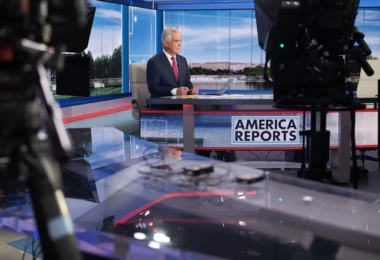Famous swimmer Lia Thomas unexpectedly and very tearfully decided to leave up competitive swimming. In a statement released yesterday, she cited an extremely draining trip as well as a sense of loneliness. Thomas, a transgender athlete, has been the center of attention for several conversations around gender equity, fairness, and the caliber of women’s sports competitions.
According to Lia, the reason for the turbulence in the waves is not the physical challenges, but rather the ongoing struggle to be accepted and treated fairly in a sport that she loves. Athletes should be honored for their accomplishments rather than feeling alone or singled out because of who they are.
After months of contentious debates, petitions, and talks over transgender athletes playing women’s sports, this decision was made. She has navigated the tumultuous seas of public scrutiny, policy considerations, and ethical problems to raise focus on the challenges experienced by transgender athletes both inside and outside of their chosen athletic venues.
Thomas’s supporters argue that her decision to resign from professional swimming is a significant loss for the sport and emphasize the necessity for athletes to have a sensitive, inclusive, and nuanced approach when managing their careers amid challenging identity conversations. In the meanwhile, her critics have examined her achievements and connected them to purported physiological benefits.
As we navigate the ramifications of Thomas’s withdrawal, the sports community is compelled to examine the mirrored waters of ethical, biological, and sociological considerations surrounding transgender athletes. The issue is: How will this event affect the evolution of competitive sports in the future, and how will the discussions affect the way in which the experiences of future athletes become intertwined with each other’s narratives?
Lia Thomas’s choice to give up competitive swimming is not only a personal one; it is a historic event that demands a moment of collective thought on the opportunities, places, and acceptance we offer to all athletes, regardless of gender identification.
Beyond the turmoil and adversity Thomas personally went through, her story highlights how important it is for the global athletic community to establish an environment that is equitable and egalitarian, protecting the fairness of competition while also accepting and honoring the different identities of athletes. All athletes who identify as transgender are included in this, regardless of their gender identification or background.
However, the issue still remains: how can justice and inclusion coexist in a subject that has historically been split along biological lines? Thomas’s story emphasizes the necessity of reexamining athletic rules, particularly those pertaining to gender identification and biological distinctions. Realizing that the regulations from the past might not be suitable or thorough for today’s athletes and those in the future could bring both her adversaries and supporters combined.
Since this subject is being discussed in a variety of settings, from locker rooms to legislative chambers, a thorough, impartial, and compassionate evaluation is required. This includes the physiological, psychological, and ethical components of the problem. Concerning transgender athletes, their biology, and their right to participate, experts from the fields of endocrinology, ethics, and athletics are needed.
Lia Thomas has been the subject of discussions ranging from ardent admiration to scathing skepticism. Others highlight the physical and psychological consequences of shifting, which may be emotionally and physically taxing. According to some, transgender women could be physiologically superior to cisgender women.
A genuinely human component that should take precedence over the scientific, moral, and competitive aspects of the debate is respect and empathy for the lived experiences of all athletes, which recognizes their struggles, triumphs, and sacrifices made in the pursuit of excellence.
Thomas’s exit raises important issues that call for an intersectional approach that strikes a balance between diversity and fair competition. This considers factors such as physical attributes and hormone levels and how they may impact competitive advantages or disadvantages in the sports world. There is no straightforward or one-dimensional approach to respond to these queries.
We are watching an athlete reach the pinnacle of achievement only to have her journey marred by public scrutiny, isolation, and a lengthy legal dispute over her fundamental right to participate. Thomas’s statement and subsequent decision to withdraw from competition present an important and poignant chance for contemplation that transcends beyond the domain of athletics.
The sports community as a whole will undoubtedly be impacted by Thomas’s withdrawal, prompting players, governing bodies, and supporters to think about how we can promote a culture that honors and recognizes all athletes for their dedication, skill, and sporting achievements, free from prejudice or exclusion.








Leave a Comment